Curious about achieving lush, luxurious hair fit for royalty? Explore ancient beauty secrets, including those of queens like Cleopatra and Nefertiti, who relied on aloe vera for its nourishing benefits.
Known as ‘the lily of the desert’, this plant has been prized for over 6000 years. But aloe vera isn’t just a garden decoration; its historical importance and hair-revitalizing properties are remarkable.
Before we dive into how aloe vera benefits low porosity hair, let’s uncover some intriguing facts about this botanical wonder. So, Is Aloe Vera Good for Low Porosity Hair?
Is Aloe Vera Good for Low Porosity Hair?
Absolutely! Aloe vera works wonders for low porosity hair. Its hydrating and nourishing properties penetrate the hair shaft, enhancing elasticity, softness, and manageability.
Furthermore, aloe vera’s soothing characteristics can effectively address scalp concerns, fostering a conducive environment for healthy hair growth.
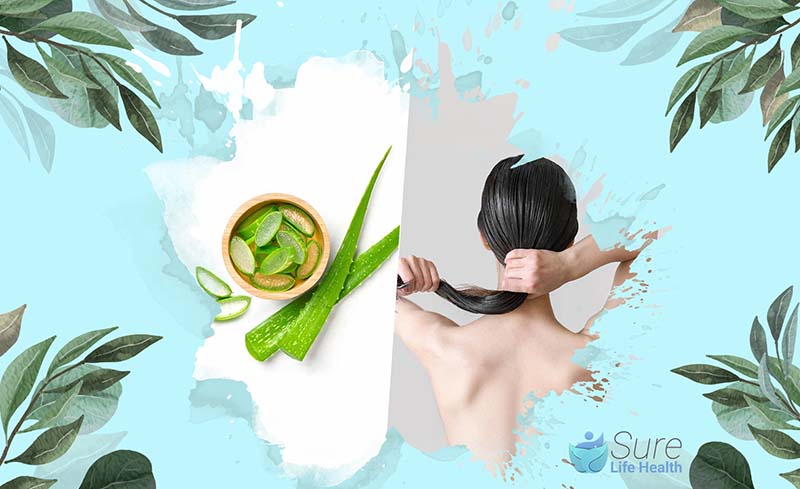
Benefits of Aloe Vera for Your Hair
Aloe Vera Helps Deeply Clean Oily Hair
When it comes to giving oily hair a good scrub, nothing beats aloe vera. It’s like a natural shampoo that gets rid of extra oil and leftover gunk from other hair stuff.
What’s cool about aloe vera is it’s super gentle. Unlike harsh chemicals in some hair products, aloe vera won’t mess up your hair. It keeps your hair safe while it cleans deeply.
Using aloe vera regularly can make your hair look cleaner, shinier, and softer.
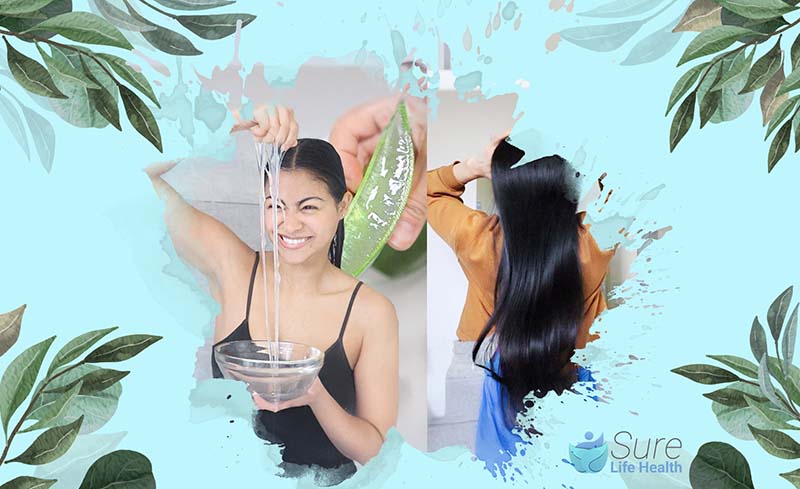
Aloe Vera Can Promote Hair Growth
Aloe vera is renowned for its ability to enhance scalp health and boost hair conditioning. After integrating aloe vera into your hair care routine, you may notice a reduction in hair breakage and loss.
Although anecdotal evidence abounds with users reporting accelerated hair growth, clinical studies are yet to definitively confirm these effects. Nevertheless, the natural properties of aloe vera continue to make it a popular choice for those seeking healthier hair.

Aloe Vera Soothes an Itchy Scalp
Aloe vera is an excellent remedy for those suffering from dandruff, known medically as seborrheic dermatitis. This common condition leads to symptoms such as an itchy scalp and flaky skin beneath your hair.
A study conducted in 1998 demonstrated that aloe vera is effective in reducing scalp inflammation, a primary symptom of dandruff. The plant’s fatty acids boast anti-inflammatory properties that help soothe the scalp.
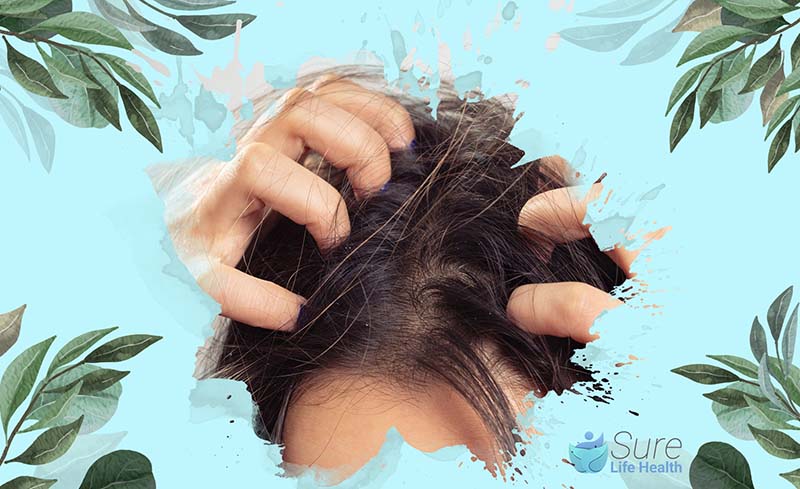
Aloe Vera Strengthens and Repairs Damaged Hair
Aloe vera is packed with essential vitamins such as A, C, and E, which all play a pivotal role in cell turnover and promote robust cell growth, leading to lustrous and healthy hair.
Additionally, aloe vera gel is rich in Vitamin B12 and folic acid, both crucial in preventing hair loss. These nutrients work together to strengthen hair, keeping it from thinning and shedding.
Although definitive research is lacking on aloe vera’s effectiveness in directly preventing hair loss, its widespread use in skin care—especially for soothing skin after sun exposure—highlights its potential benefits for hair too. Aloe vera’s substantial collagen content and soothing properties suggest it could also help mend sun-damaged hair.
Instructions for Using Aloe Vera Effectively for Hair
For those intrigued by the benefits of aloe vera for hair care, there are numerous methods available, ranging from DIY to store-bought options.
One popular method involves applying fresh aloe vera gel directly to the scalp. Here’s how to do it:
- Harvest a leaf from a live aloe vera plant.
- Extract the gel using a spoon. Some prefer to blend it with coconut or olive oil for added nourishment.
- Gently massage the gel or mixture into the scalp and leave it on for about an hour.
- Rinse your hair and scalp using a mild shampoo.
- Repeat this process 2-3 times weekly, as needed.
Given that some individuals may have sensitivities to aloe vera, it’s advisable to perform a patch test before applying it to the scalp. Simply rub a small amount of gel onto the wrist and observe for any adverse reactions before proceeding.
Another effective method involves creating hair masks with aloe vera. Here’s a simple recipe:
Mix aloe vera with one of the following ingredients:
- Honey
- Jojoba oil
- Egg whites
- Fenugreek
Massage the mixture into the scalp and hair, then cover with a shower cap. Leave it on for 15 minutes to 1 hour before rinsing off with a mild shampoo.
Additionally, for those who prefer convenience, there are commercial products available containing aloe vera.
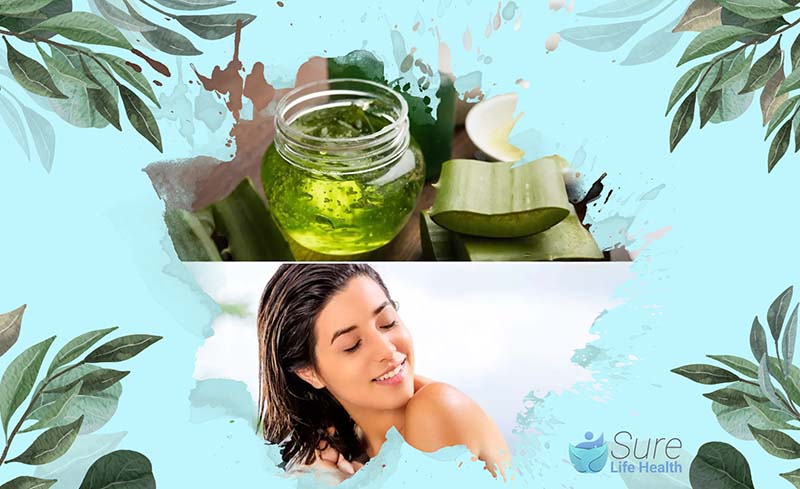
Side Effects of Using Aloe Vera for Hair
While aloe vera gel is generally safe for topical use, it’s essential to be aware of potential side effects, particularly for those with sensitivities.
Before incorporating aloe vera into your hair care routine, perform a patch test. Simply apply a small amount of aloe vera to the inside of your wrist and wait for up to 2 hours to observe any adverse reactions. This precautionary step helps identify any potential allergies or sensitivities to aloe vera.
Additionally, exercise caution when using topical aloe vera alongside hydrocortisone cream. When used together, aloe vera can enhance the absorption of cortisone by the skin.
Therefore, individuals using hydrocortisone cream should consult with a healthcare professional before combining it with aloe vera to mitigate any potential risks.
Notes:
- Patch testing is a simple yet crucial step to determine individual sensitivity to aloe vera.
- If you experience any adverse reactions, discontinue use and consult a healthcare provider.
- Always follow the recommended guidelines when using topical treatments, especially in combination with other medications or products.
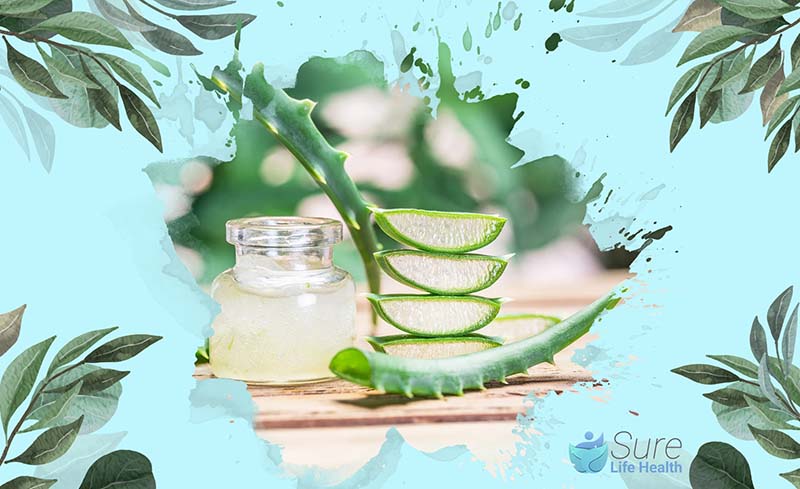
Tips for Using Aloe Vera
Purchasing aloe vera gel directly from the store is a convenient option. For the purest form, choose a product labeled as 100% aloe vera with no added fragrances or alcohol.
Alternatively, aloe vera can be harvested directly from the plant, which can be bought as leaves from natural food stores or grown indoors as a decorative and functional houseplant.
Here’s the proper technique to extract gel from an aloe vera plant:
- Select an older, thicker leaf from the outer section of the plant to ensure maturity.
- Allow the yellow latex that seeps out upon cutting to drain completely and discard it, as it can be irritating.
- Clean the leaf under running water.
- Carefully trim off the spiny edges with a sharp knife.
- Peel back the skin using the knife or a peeler, exposing the clear gel inside.
- Extract the gel either by cutting or scooping it out.
Note: Fresh aloe vera gel is perishable and should be used quickly. To extend its life, store it in a sealed container in the refrigerator for up to one week, or freeze it for longer storage.
- Hair and scalp treatment: Apply fresh aloe vera gel directly to your hair and scalp to nourish and condition. Massage it thoroughly from your scalp to the ends of your hair. For added hydration, mix in a few drops of castor oil before applying. Leave the treatment in your hair for about 30 minutes before rinsing.
- For greasy hair: Create a clarifying rinse by mixing 1 to 2 tablespoons of aloe vera gel with 1 tablespoon of lemon juice and 1 cup of water. Use this mixture as a rinse after shampooing, leave it on for a few minutes to cut through oil, and then rinse thoroughly.
These applications of aloe vera not only leverage its soothing properties but also enhance hair health and manage scalp conditions effectively.
Where to Find Aloe Vera?
Aloe vera is widely available and can often be found locally. If you reside in a region with a sunny and dry climate, it’s common to find this succulent growing right in your backyard, or perhaps a neighbor might have it. For those without direct access to the plant, pre-cut aloe vera leaves are readily available at many natural food stores.
Extracting your own aloe vera gel is straightforward and ensures you get the most natural product. To do this, you simply need a sharp knife, a clean bowl, and some counter space to work on.
After removing the gel from the leaves, store it in a sealed container in the refrigerator, where it will remain fresh for up to a week. For longer preservation, freezing the gel is an effective method.
If harvesting your own aloe vera is not an option, pre-packaged aloe vera gel is easily purchased at drugstores or online. However, be aware that commercial gels often contain additional ingredients such as fragrant herbs, thickeners, or even medicinal additives.
These compounds might not be suitable for all uses, particularly if you are looking for a pure gel for hair care. Always opt for a product with the fewest possible additives to ensure the best quality and least risk of unwanted effects.
Conclusion
Aloe vera is not only great for soothing sunburns but also enhances hair care by providing hydration and nourishment. Though research is ongoing, its popularity in hair care continues to rise, making it a staple in hair masks and conditioners for its strengthening, moisturizing, and smoothing properties.
For DIY enthusiasts, aloe vera is a valuable addition to homemade hair treatments. Always perform a patch test before using aloe vera gel to avoid allergic reactions. Is Aloe Vera Good for Low Porosity Hair? Its growing use suggests promising benefits.
For those seeking more information and honest product reviews, I recommend visiting HealthCareConnect.

Dr. Joyce Slater: Your Guide to Informed Health Choices
Dr. Joyce Slater shines as a distinguished expert in the field of nutrition and public health. Contributing her vast expertise to HealthConnectbc, she embodies a deep-seated passion for enhancing public well-being. As a respected figure in her field. Dr. Slater’s academic journey and professional achievements are nothing short of inspirational.
Holding a significant position as a researcher and educator, Dr. Slater has delved deeply into the intricacies of food literacy and nutritional science. Her work, prominently featured in numerous esteemed scientific publications, underscores her dedication to expanding our understanding of food’s role in health and society.
At the heart of Dr. Slater’s professional ethos is a profound desire to positively impact individual lives through education and research. She often says, “Empowering people with the knowledge to make healthier choices is the most rewarding aspect of my work.” This principle is the cornerstone of her involvement with HealthConnectbc, where she strives to provide reliable and practical health advice.
Dr. Slater’s contributions to HealthConnectbc are multifaceted: academically, she offers insights into the complex world of nutrition and health, enhancing both public understanding and professional practices. Additionally, she is instrumental in guiding and inspiring the next generation of health professionals, thus fostering future excellence in the field.
Juggling rigorous research with her educational duties, Dr. Slater demonstrates an unwavering commitment to her profession. Her approachable nature and genuine concern transcend the confines of academia, touching the lives of everyone she interacts with. Dr. Slater looks forward to continuing her journey of discovery and education, dedicated to the ongoing improvement of public health and nutrition.
At HealthConnectbc, Dr. J. Slater is not just a contributor; she is a guiding light, dedicated to enlightening and motivating individuals towards a healthier and more informed lifestyle.
PUBLISHED ARTICLES
- Food literacy competencies: A conceptual framework for youth transitioning to adulthood (2018)
- Self-perceived eating habits and food skills of Canadians (2016)
- Challenges to acquiring and utilizing food literacy: Perceptions of young Canadian adults (2016)
- Socio-demographic and geographic analysis of overweight and obesity in Canadian adults (2009)
- Sustainable well-being: Concepts, issues, and educational practices (2014)

